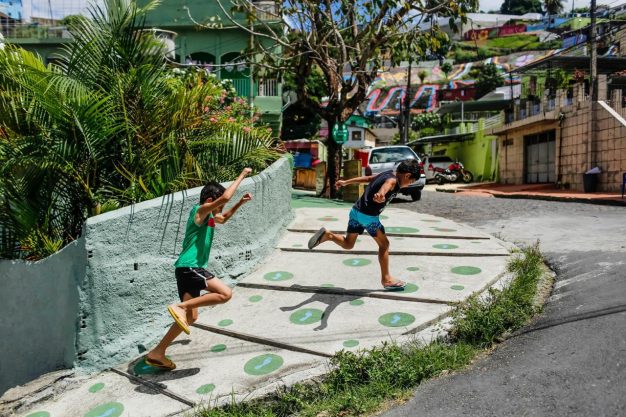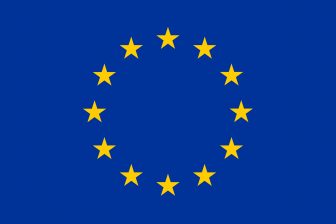
New cities for Urban95 in Brazil
The Bernard van Leer Foundation has partnered with Brazil’s Sustainable Cities Institute to extend the country’s Urban95 network by a further 11 cities.
It builds on the three pioneering partner cities of São Paulo, Recife and Boa Vista which are committed to incorporating a stronger focus on babies, toddlers and children in each city’s decision-making process.
The Urban95 scheme has been a hugely successful global initiative, using the ‘real world’ experiences of children as they go about their daily lives to help inform urban and city planning.
‘Promoting positive parenting behaviours’
The new network comprises the cities of Brasileia, Campinas, Crato, Caruaru, Fortaleza, Ilheus, Jundiaí, Niterói, Pelotas and Ubiratã, with the mayor of each one taking part in an online launch.
Each city will receive a toolkit for promoting positive parenting behaviours. The network will support each city to conduct a detailed diagnosis of how babies, toddlers and caregivers experience urban life, generating data that can be used to make municipal plans for early childhood. It will then support cities to implement and monitor those plans, and devise mechanisms – such as engagement with civil society and media – to maintain early childhood as a priority.
The project will support municipalities in carrying out a detailed diagnosis of the experience and access of children and babies to cities, offering data that can support the construction of better public policies for early childhood and in line with other local strategic agendas.
Better public policies for early childhood
The Instituto Cidades Sustentáveis (Sustainable Cities Institute) has, since 2012, been working to raise awareness and mobilize local governments to implement structuring public policies that contribute to tackling social inequality and building fairer and more sustainable cities. This latest collaboration with the BvLF will help see that these cities get the necessary technical support across the themes of urbanism, mobility, data management, behavioral science, communication focused on young children and their caregivers, and a consultancy for the improvement of policies and programs offered by specialists in the area.
There will also be support for the implementation and monitoring of Municipal Plans for Early Childhood, aiming at ensuring that the agenda for early childhood is continuously prioritized by public managers.
‘Big step towards quality of life for future generations’
Jorge Abrahão, general coordinator of the Sustainable Cities Institute, said: “It will be a big step towards the quality of life for future generations. We will have elections this year and the construction of public policies that guarantee the continuity of this issue is fundamental. It is good to emphasize the importance of these city leaders in stimulating the implementation of actions. In this sense, it is a care for the present that dialogues with the future.”
Each member city is committed to incorporating a stronger focus on babies, children and toddlers in their decision making. As well as providing opportunities for peer-to-peer exchange, the new network will support them with technical expertise in areas including urban mobility, data management, behavioural science, communication focused on young children and caregivers, and improving policies and programmes.




